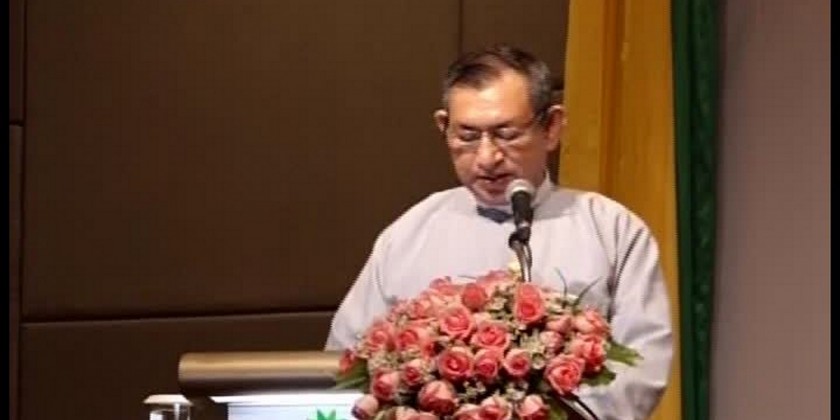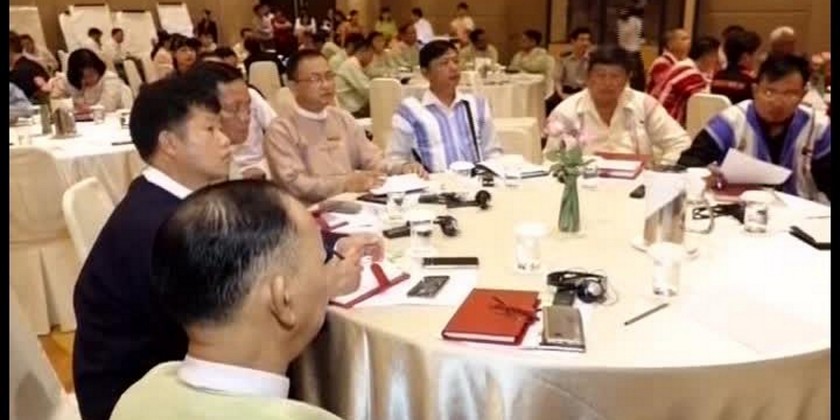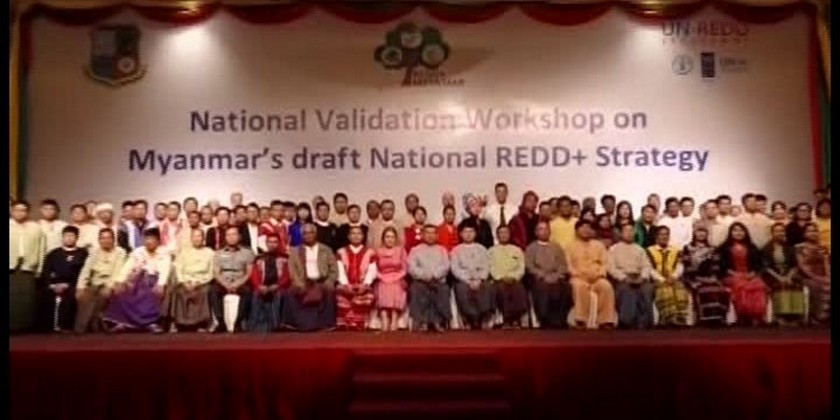




The National Validation Workshop on Myanmar’s draft National REDD+ Strategy has been held in Nay Pyi Taw from 10th to 11th September. The departmental officials, NGOS, CSOs, ethnic representatives, representatives of NCA signatories’ ethnic armed organizations and officials from UNDP, FAO, UN Environment and UNREDD program attended the workshop.
REDD+ stands for countries' efforts to reduce emissions from deforestation and forest degradation, foster conservation, sustainable management of forests and enhancement of forest carbon stocks.The primary aim of REDD+ is to reduce the concentration of greenhouse gases in the atmosphere by maintaining and enhancing forest carbon stocks in developing countries.
Director General, Forest Department, Dr. Nyi Nyi Kyaw said “The National REDD+ Strategy has outlined with the suggestions from sectors relating to deforestation and people living in all States and Regions. Today we are going to approve this strategy after making assessment by attendees. Over 50 coordination meetings had done during three years to formulate this strategy. The related Ministries, organizations, ethnics and locals involve in this program and the tasks on reducing emissions from deforestation and forest degradation will be implemented soon.”
The government of Myanmar intends to use REDD+ as an opportunity for advancing green development by protecting biodiversity, reversing land degradation, improving people’s livelihoods and aiding adaptation to climate change.
Program Coordinator, UNREDD, Khin Hnin Myat said “When REDD is going to be implemented, the strategy needs to be drawn first. And we have to collect base line data on carbon storage and carbon emission of Myanmar forests, the safety guidelines for social and economic lives of local people, and measuring the forest areas. The UNDP, FAO and UNEP are providing technical supports in implementing the tasks.”
Data collected by the Forest Department indicates the annual rate of forest loss for the last 10 to 15 years is between 1.22% and 1.96% while the rate of reducing closed forests which goes largely into open forests and other woodland is between 4.63% and 4.81% annually.
Director, Promotion of Indigenous and Nature Together (POINT), Naw Ei Ei Min said “Myanmar is rich in forest resources, and has a lot potential to carry out the deforestation and forest degradation tasks compared to the countries facing in such kind of situation. On the other hand, the rate of forest degradation is getting high. If we can control it, Myanmar can participate effectively in action against climate change. That’s why, this program is crucial for the country.”
Myanmar became a UN-REDD partner country in December 2011 and since then has undertaken a range of REDD+ readiness activities with UN-REDD support. In June 2013, Myanmar implemented the REDD+ Readiness Roadmap in cooperation with UNREDD program.
MITV is a broadcast TV brand intended for international and local English speaking consumers, launched on 31st March 2010 based in Yangon.